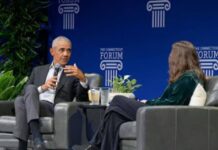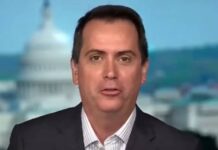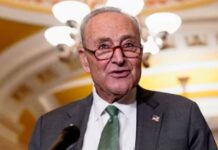
Walz was just one election away from becoming the Vice President. Thankfully, America was saved from that scenario.
And Tim Walz has been exposed for this incredibly shameful statement he made about Donald Trump.
In an address following the tragic shooting of two Democratic lawmakers and their spouses in Minnesota, Governor Tim Walz (D-MN) urged the nation to embrace “decency” in political conversations. The alleged shooter, Vance Boelter, was apprehended after a two-day manhunt, prompting Walz to reflect on the state of political rhetoric.
Speaking on Sunday evening, he called for unity and compassion, emphasizing the need to move away from divisive tactics. However, his recent remarks at the South Carolina Democratic Party Convention, where he encouraged Democrats to “be a little meaner” in their approach, cast a shadow over his plea for civility.
“A moment in this country where we watch violence erupt, this cannot be the norm. It cannot be the way that we deal with our political differences,” Walz said, addressing the tragedy. “Now is the time for us to recommit to the core values of this country. And each and every one of us can do it.”
Walz paid tribute to the late Speaker Melissa Hortman, one of the victims, recalling her ability to foster collaboration. “Talk to a neighbor rather than arguing. Debate an issue. Shake hands. Find common ground. This is who Melissa Hortman was. In the first negotiating session that I had a chance to work with her, she got all the partners in the room, and she provided each and every one of us a copy of a book called ‘Getting to Yes,’” he said.
He praised her approach, noting that her commitment to goodwill and compromise shaped years of productive legislative work. “It’s not about hatred. It’s not about mean tweets,” he added, taking what’s thought to be a subtle swipe at President Donald Trump. “It’s not about demeaning someone. It’s leading with grace and compassion and vision and compromise and decency.”
Yet, just weeks earlier, Walz’s tone was markedly different. Speaking at the South Carolina Democratic Party Convention, he labeled Trump a “wannabe dictator,” a “bully,” and a “cruel man.” He urged Democrats to match that intensity, saying, “Maybe it’s time for us to be a little meaner, maybe it’s time for us to be a little more fierce.”
He even said that Democrats should “bully him back,” a stark contrast to the calls for unity and kindness he voiced after the Minnesota tragedy.
This shift raises questions about consistency in leadership. When a public figure advocates for aggressive rhetoric one moment and then condemns it in the wake of violence, it risks undermining their credibility.
Walz’s earlier comments, which framed political discourse as a battle requiring ferocity, seem to clash with his later appeal for grace. The tragedy in Minnesota, which claimed the lives of dedicated public servants, highlights the stakes of such rhetoric. Words carry weight, and leaders must navigate their influence carefully, especially in a polarized climate.
The Left’s Double Standard on Inflammatory Rhetoric
The inconsistency in Walz’s messaging reflects a deeper pattern among some on the political left, who often condemn inflammatory rhetoric from opponents while excusing or embracing it when it suits their goals. This selective outrage creates a troubling hypocrisy, particularly when it comes to the potential for words to incite violence.
While Walz’s call for “decency” after the Minnesota shooting was heartfelt, his earlier encouragement to “be a little meaner” mirrors a tendency among some progressive leaders to justify harsh rhetoric as a necessary response to their adversaries.
This double standard is not unique to Walz. Across the political spectrum, leaders on the left have frequently criticized conservative figures for language they deem divisive, yet they remain silent or defensive when their own allies use similar tactics.
For instance, prominent Democrats have labeled Republican policies or figures as existential threats, framing political opponents as enemies to be defeated at all costs.
Such language, while energizing to a base, can fuel animosity and create an environment where extreme actions feel justified to some. The Minnesota tragedy is a reminder that heated rhetoric, regardless of its source, can have unintended consequences.
Moreover, the left’s selective condemnation of “mean tweets” or aggressive rhetoric often ignores their own contributions to a toxic political culture. When leaders rally their supporters with calls to “fight” without clear boundaries, they risk normalizing a mindset that can spiral into real-world harm.
The expectation seems to be that their rhetoric is inherently righteous, while their opponents’ is dangerous. This inconsistency not only erodes trust but also muddies the path to meaningful dialogue.
Stay tuned to The Federalist Wire.



















